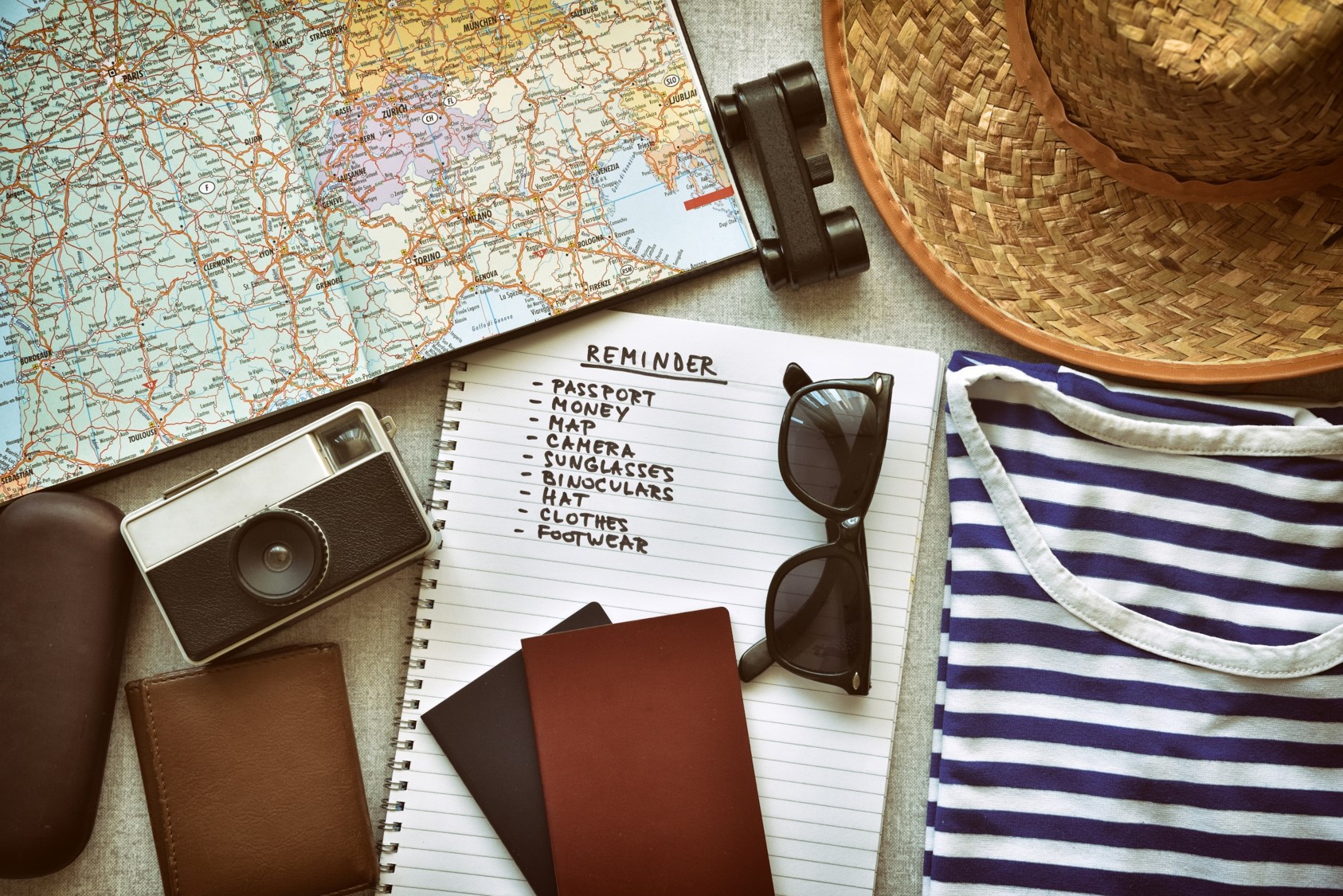Checklist: Things to Organise Before and After Becoming an Expat

So you’re about to set off on the adventure of a lifetime? Relocating to a new country is always an exciting – and occasionally daunting – experience.
There is a great deal to plan and prepare for when you move abroad, so to ease the stress we’ve put together this useful checklist. Containing everything you might need to do before and after relocation, this list is a comprehensive guide to navigating those tricky waters of moving overseas.
Checklist 1: Before Relocation
3 – 6 months before departure
- Notify your local council, HMRC, the International Pension Centre (if you’re retiring abroad) and the Department of Work and Pensions that you will be relocating.
- Find out if you will be required to continue paying UK tax while overseas. The HMRC website offers detailed information on all aspects of this.
- Confirm visa and entry requirements. Ensure all necessary applications are completed in good time.
- Are your passports up to date? Renew if necessary.
- Organise all paperwork associated with the move; estimates, letters, birth certificates, wills, tax documents, driving licenses etc. Keep paper copies in one folder and digital copies in secure online storage (known as the Cloud).
- Check quarantine laws in your destination country if you plan to take your pet with you.
- Look into pet relocation.
- Find out about any vaccinations required for your family or pets. Book the appointment with your doctor and/or vet and be sure to get an international vaccination record booklet.
- Create three detailed inventories of your belongings. One for items to be kept in storage, one for items to sell and one for those you are taking with you.
- Go on a fact-finding mission. Make at least one visit to your new city and get to know the area. If you have time, arrange a meet and greet with local expats so you have some friends to call on when you arrive.
- Start learning the language and begin to accustom yourself with your new country’s culture and etiquette.
90 days before departure
- Book travel tickets and hotels if they are required.
- If you have children, inform their school that you will be moving abroad and arrange for transfer certificates and any important school records to be transferred to the new school or given to you.
- Tell your GP, dentist and vet that you are relocating and request your family and pet’s medical and dental records.
- Find out if you can use your GB or Northern Ireland driving license abroad or if you will need an International Driving Permit. A permit can be bought directly from the AA, RAC or the Post Office. Both the AA and RAC offer extensive advice on driving abroad.
- Research removals companies and ask for quotes. They will also be able to provide details of any items that you will not be permitted to move to the new country.
- Starting packing away any belongings you will not need until after the move.
60 days before departure
- Check insurance policies. What will you need in your new country?
- Contact your bank and inform them that you are moving abroad. Give them your new address if you know it. If you don’t, change the address to that of a friend or family member for the short-term.
- Establish a power of attorney. Ensure you give certified copies of all necessary documents to the individual who will be managing your affairs whilst you are away.
- Set up a global bank account.
- Set up direct debits for any bills you will continue to pay whilst you are away.
- Internet banking is a really useful service that allows you to manage your money online. If you don’t already have it, set this up too.
- Have the post office set up their mail re-routing service for you?
- If you are planning to sell anything such as a car or household belongings, do so now.
30 days before departure
- Get an international SIM card for your phone.
- Change your address on anything that requires it.
- Let family and friends know your new address too.
- Pay all outstanding bills. Leave a small amount of money behind with a trusted individual to pay any unexpected bills that arrive after you leave.
- If you own your house and are selling or renting it out, contact the utility companies to change the names on the bill. Cancel your TV license, telephone and internet connection.
- If you are renting your property out, make any necessary repairs and create an inventory of everything you will be leaving in the house for the tenants.
- Organise all documentation required for the removals company.
- Can you pre-arrange utilities (gas, electric, phone, internet…) for the new place? This will help you settle into your new home quickly.
Moving day
- Check all rooms (including the loft and cellar) for any items you may have forgotten.
- Read the gas and electric meters and make a note (or better yet, take a photo) of the readings.
- Get an estimated delivery date for the belongings you are shipping.
- Make sure all the essentials are in your suitcases as you may be living out of these for a few weeks. Pack tea, coffee and snacks for your arrival.
- Lock all windows and doors.
- Say your final goodbyes and enjoy the start of your new adventure!
Checklist 2: After Relocation
- On arrival at the airport pick up an English language newspaper and any relevant tourist/expat/travel magazines or guides you can get your hands on. They will be full of great ideas and information.
- When you arrive at your new property, check that all the lights work. Read the gas and electric meters if you can and make a note of the readings.
- If you’re renting, go through the rental agreement and inventory with a fine-toothed comb.
- Make a note of any issues with the property that aren’t listed on the inventory. If you haven’t been provided with an inventory, create one of your own and take time-stamped photos to accompany it. This should protect your deposit.
- Unpack the items you bought with you on the plane. This will help you settle quickly.
- Make the beds and nip to the local grocery store/supermarket for the essentials. Coffee, tea, snacks and toiletries will ensure your first night is a comfortable one.
- If you weren’t able to do this before the move, set up utilities and get connected to the internet as soon as possible.
- Make sure your bank account is ready to use and your money is available in the right currency.
- Register with the local authorities and apply for any documents required to work (if you haven’t done so already).
- Register with the British consulate – they are very useful contacts in times of need.
- Learn about local laws and your rights. Ignorance is not bliss in this case and you will be expected to abide by the laws of the land as soon as you arrive.
- Register with the local doctor’s surgery, dentist and vet.
- Memorise the national emergency telephone number and locate the closest hospital.
- Try to avoid starting work right away – taking a few days off to acclimatise will be really helpful.
- Explore the local area. Find out where the best shops, restaurants, gyms and other essential places are so you can live like a local right away.
- But take some time to be a tourist too. Visit the top attractions, pick up a few souvenirs to send home and enjoy your new city as if you were on holiday.
- Consider how you will get about. Is public transport reliable or do you need to buy a car?
- If you plan to buy a car, make sure you have all the right documents and are insured.
- Make an effort to meet your neighbours and ask their advice on the local area.
- Be prepared to feel a little homesick – keeping in touch with friends and family back home will help.
- Set up Skype and get a local SIM card for your phone.
- Join local clubs and groups to meet new people and settle in much more quickly. Take up a new hobby or pick up an existing one.
- Get the kids settled into school and a new routine as quickly as possible.
- Understand the culture of your new workplace by speaking to colleagues about office etiquette and what’s expected of employees in meetings etc. Arrange an after-work meetup to get to know them on a personal level too.
- Join online Expat forums to discuss any issues or offer advice to people in the same position as you.

